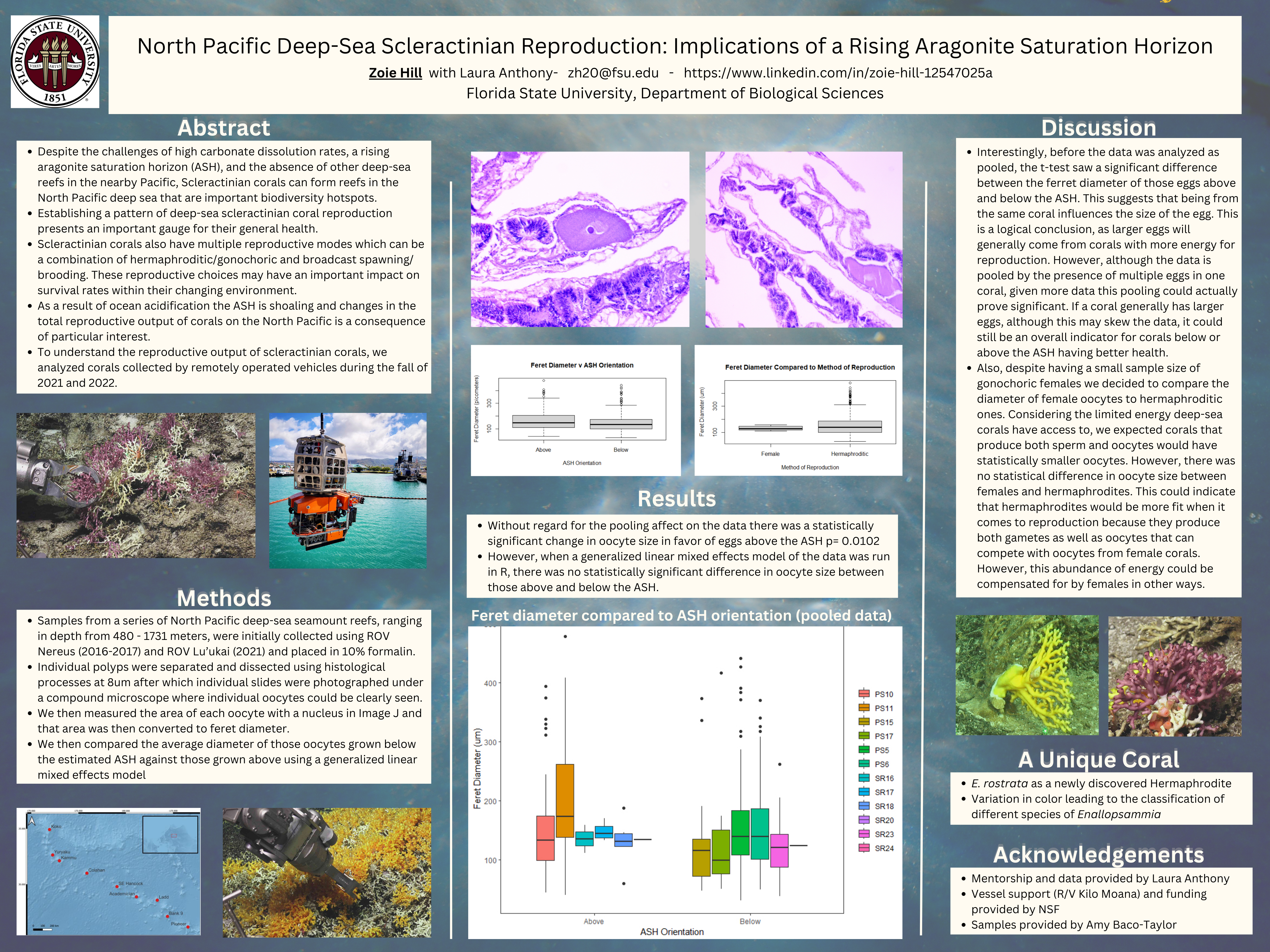Research Symposium
23rd annual Undergraduate Research Symposium, April 6, 2023
Zoie Hill Poster Session 4: 4:00 pm - 5:00 pm/ Poster #133
BIO
My name is Zoie Hill and I am a 3rd year Biology major at Florida State University. I have an interest in evolutionary biology as well as language and culture studies. As a Tallahassee local, many of the research opportunities I have had thus far have been closely tied to the Gulf of Mexico and it’s iconic wildlife. However, this summer I traveled with the FSU study abroad program to participate in it’s London Biology Program. Over the course of those months I visited multiple specialized labs and ecological depositaries which introduced me to some of the sub-disciplines of biology. In particular, the study of species diversification with respect to changing climate is something I am looking to pursue further as I finish up my major and Chinese minor here at FSU.
North Pacific Deep-Sea Scleractinian Reproduction: Implications of a Rising Aragonite Saturation Horizon
Authors: Zoie Hill, Laura AnthonyStudent Major: Biology
Mentor: Laura Anthony
Mentor's Department: Biology Mentor's College: Florida State University Co-Presenters:
Abstract
Despite the challenges of high carbonate dissolution rates, a rising aragonite saturation horizon (ASH), and the absence of other deep-sea reefs in the nearby Pacific, Scleractinian corals can form reefs in the North Pacific deep-sea that are important biodiversity hotspots. Establishing a pattern of deep-sea scleractinian coral reproduction presents an important gauge for their general health. Scleractinian corals also have multiple reproductive modes which can be a combination of hermaphroditic/gonochoric and broadcast spawning/ brooding. These reproductive choices may have an important impact on their survival rates within their changing environment. As a result of ocean acidification the ASH is shoaling and changes in the total reproductive output of corals on the North Pacific is a consequence of particular interest. To understand the reproductive output of scleractinian corals, we analyzed corals collected by remotely operated vehicles during the fall of 2021 and 2022.
Keywords: Biology, deep-sea coral, reproduction


